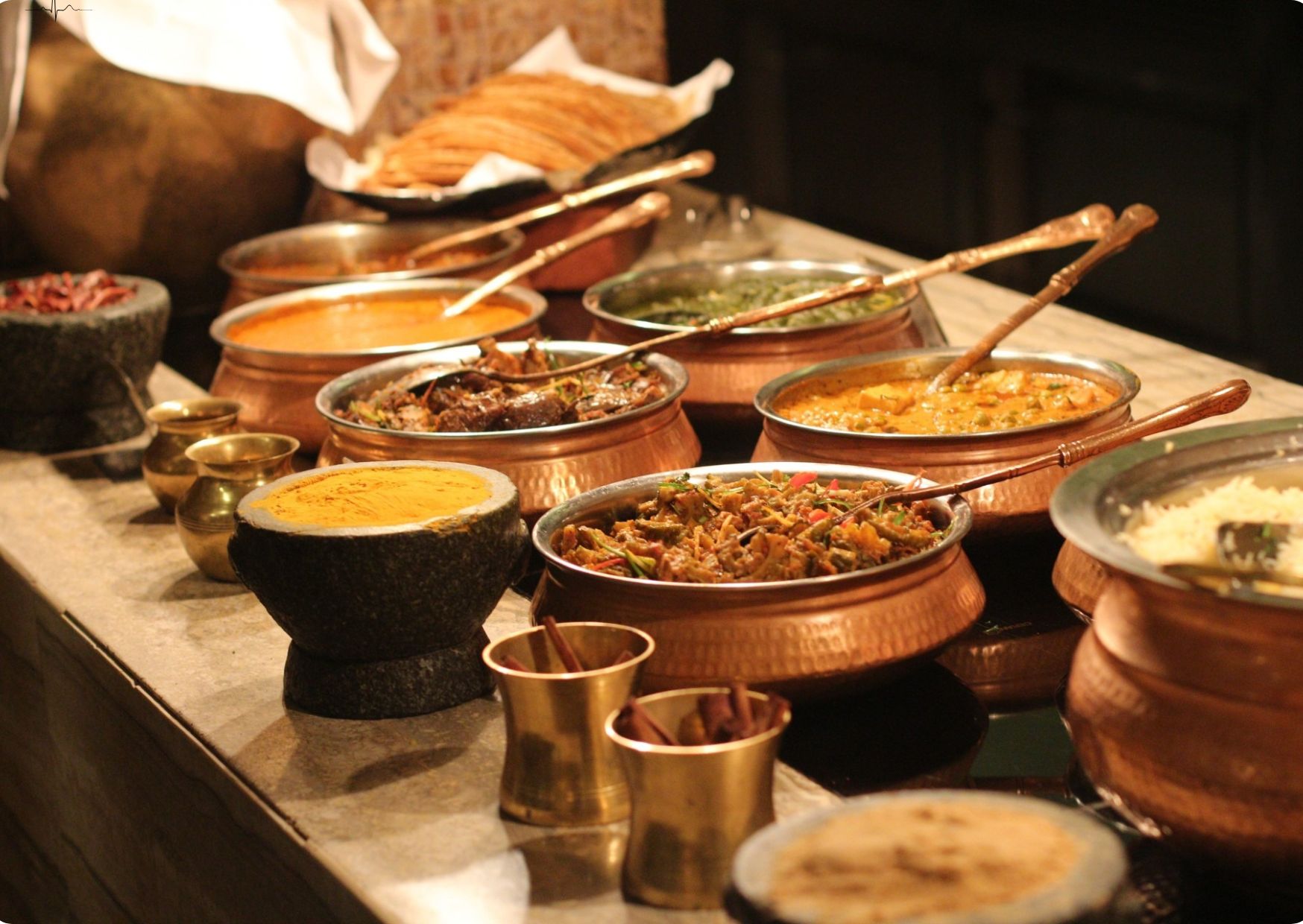Botswana cuisine
“The best dishes are those cooked with love”
Description
Overview
Welcome to the Botswana cuisine course, an immersive learning experience designed to introduce you to the rich, flavorful, and diverse food culture of Botswana. Known for its traditional dishes and unique flavors, Botswana cuisine is a reflection of the country’s history, geography, and cultural influences. Whether you’re an experienced cook or a food enthusiast looking to explore new flavors, this online Botswana cuisine course offers something for everyone.
Botswana’s food culture is shaped by its agricultural practices, with staple ingredients such as maize, sorghum, millet, and beef playing a central role. Traditional cooking methods, such as boiling, steaming, and grilling, create delicious dishes that are both nourishing and satisfying. This course will not only teach you how to prepare popular Botswana dishes but also give you insight into the history and cultural significance of the meals you will be preparing.
In this best Botswana cuisine course, you’ll learn how to prepare authentic Botswana meals like seswaa (slow-cooked beef), bogobe (a porridge made from maize or millet), dumplings, and the much-loved bushi (stew). These dishes are part of everyday life in Botswana and hold deep cultural and ceremonial significance. You’ll also discover the essential ingredients, herbs, and spices that are used to create the distinct flavors of Botswana cuisine.
This online Botswana cuisine course is designed for students around the world, including those in the UK and other regions. With easy-to-follow instructions, video tutorials, and expert tips, you will gain the skills and confidence to recreate these authentic dishes in your own kitchen. Whether you want to learn new recipes for family meals, impress friends with unique dishes, or expand your culinary knowledge, this course is perfect for anyone interested in exploring the heart of African cuisine.
Key Course Highlights:
- Authentic Botswana Dishes: Learn to cook iconic dishes like seswaa, bogobe, dumplings, and bushi, all of which hold cultural significance in Botswana.
- Cultural and Historical Insights: Discover the history behind the dishes you prepare and understand how Botswana’s food culture has evolved over time.
- Hands-On Experience: Follow along with detailed video tutorials and recipes to prepare traditional meals with ease.
- Global Access: Whether you are in the UK, the US, or elsewhere, you can take this online Botswana cuisine course from anywhere, at your own pace.
- Simple and Easy to Follow: This course is designed for beginners as well as experienced cooks, with easy-to-understand instructions and tips.
By the end of the course, you will have a deep understanding of Botswana cuisine, its importance in daily life and ceremonies, and how to recreate these flavors at home. You will not only be able to cook traditional meals but also gain a new appreciation for Botswana’s rich culinary heritage.
Description
Why Take the Botswana Cuisine Course?
Botswana cuisine offers a distinctive blend of flavors that are both hearty and comforting, making it a fascinating cuisine to explore. This course provides an in-depth look at the dishes and cooking methods that define Botswana cuisine and introduces you to the essential ingredients used in the country’s traditional recipes. Through this course, you will not only learn how to cook authentic Botswana meals but also gain insight into the cultural significance and history behind the food.
In Botswana, food is more than just sustenance. It is a reflection of the country’s heritage, community, and traditions. Botswana cuisine has been shaped by the environment, the availability of local produce, and the cultural influences of various ethnic groups. Dishes are often simple yet full of flavor, making use of fresh, local ingredients like beef, maize, millet, and vegetables. The meals are designed to nourish the body and bring people together.
This best Botswana cuisine course is perfect for anyone interested in learning about the flavors and food culture of Southern Africa. Whether you are a professional chef, a culinary enthusiast, or a home cook looking to broaden your culinary knowledge, this course will provide you with the skills you need to create authentic Botswana dishes at home.
What Will You Learn in This Course?
Essential Dishes of Botswana Cuisine:
- Seswaa: This slow-cooked beef dish is a Botswana classic, often served during special occasions. Learn how to cook this flavorful dish, which is typically made with beef, onions, and spices, and enjoy it with bogobe (maize porridge) or dumplings.
- Bogobe: A staple of Botswana cuisine, bogobe is a thick porridge made from maize or millet, which is served as a side dish to stews and meats. Learn how to prepare this versatile dish and pair it with other Botswana delicacies.
- Dumplings: These soft, steamed dough balls are served as a side dish and are often enjoyed with seswaa or other meats. This course will teach you how to make these perfect dumplings that complement traditional stews.
- Bushi: A hearty, flavorful stew that combines beef or chicken with vegetables and spices. Discover how to cook this comforting dish that is enjoyed in Botswana’s homes and communal gatherings.
Traditional Cooking Methods:
- Slow Cooking: One of the defining cooking techniques in Botswana cuisine is slow cooking. Dishes like seswaa are cooked over several hours to bring out the rich flavors of the ingredients. You’ll learn how to master this technique and create tender, flavorful stews.
- Steaming: Steaming is another important cooking method, especially when preparing dishes like dumplings. This course will teach you how to steam food perfectly, ensuring it retains its moisture and flavor.
Understanding Botswana Ingredients: Botswana cuisine relies heavily on locally sourced ingredients, many of which are staples in Botswana homes. In this course, you’ll learn about key ingredients like maize, millet, sorghum, and beef, and discover how to incorporate them into your cooking. You’ll also be introduced to herbs and spices like rosemary, garlic, and onions, which are essential in creating the unique flavors of Botswana dishes.
Cultural and Historical Insights:
- Botswana’s Food Culture: Food in Botswana plays an integral role in daily life, with meals often enjoyed communally. You will learn about the cultural significance of food during celebrations, family gatherings, and traditional ceremonies, and how it connects people across generations.
- Botswana’s Food History: The food culture of Botswana has evolved over time, influenced by indigenous cultures as well as neighboring regions. You will gain an understanding of how Botswana’s cuisine has developed and how it reflects the history of the country.
Benefits of Taking This Course:
- Master Traditional Botswana Dishes: You’ll learn to cook authentic Botswana meals that are loved by locals and admired by food enthusiasts worldwide.
- Cultural Enrichment: Gain a deeper understanding of the history, culture, and customs of Botswana through its food.
- Practical Experience: The course provides detailed, step-by-step recipes and video tutorials that will guide you through the cooking process, helping you feel confident in preparing Botswana meals at home.
- Global Perspective: By learning about Botswana cuisine, you will expand your culinary knowledge and develop a deeper appreciation for African food culture.
- Convenience and Flexibility: This online Botswana cuisine course can be taken from anywhere, and you can progress at your own pace. Whether you’re in the UK, US, or anywhere in the world, you’ll have access to high-quality content and expert guidance.
This Course Best Fits For
The Botswana cuisine course is designed for:
- Home Cooks: Whether you’re a beginner or an experienced cook, this course will help you learn how to prepare authentic Botswana dishes and expand your cooking repertoire.
- Food Enthusiasts: If you love exploring new cuisines and flavors, this course will introduce you to the unique tastes of Botswana and Southern Africa.
- Aspiring Chefs: Culinary students and professionals who are looking to specialize in African cuisine can benefit from this course by learning essential techniques and recipes used in Botswana cuisine.
- Cultural Enthusiasts: If you have an interest in African culture and food, this course will deepen your understanding of Botswana’s culinary traditions and history.
Requirements
To get the most out of the Botswana cuisine course, you will need:
- Basic Kitchen Equipment: A stove, pots, and utensils for cooking.
- Access to Ingredients: Some ingredients specific to Botswana cuisine can be sourced locally or substituted with similar items. The course provides tips on where to find these ingredients and suitable alternatives.
- Enthusiasm for Cooking: A passion for learning new recipes and techniques will help you make the most of this course.
Career Path
Upon completion of the best Botswana cuisine course, you will be equipped with the knowledge and skills to pursue a variety of career paths, including:
- Chef specializing in African Cuisine: With expertise in Botswana cuisine, you can work in restaurants or catering companies that focus on Southern African food.
- Food Blogger or Content Creator: Share your culinary adventures and recipes through blogs, YouTube channels, or social media.
- Culinary Instructor: Teach others how to prepare traditional Botswana dishes, either in-person or online.
Course FAQ
What is the focus of this course?
- This course focuses on the preparation of traditional Botswana dishes, along with the cooking techniques and ingredients that make Botswana cuisine unique.
Is this course suitable for beginners?
- Yes, the course is designed to be accessible to beginners, with clear instructions and videos to guide you every step of the way.
Do I need special equipment for this course?
- Basic kitchen tools like pots, pans, and knives are sufficient. For certain dishes, a grill or steamer may be needed.
How long will it take to complete the course?
- You can take the course at your own pace, but most students complete it within a few weeks.

- LevelAll Levels
- Last UpdatedJanuary 13, 2025
Student Ratings & Reviews

